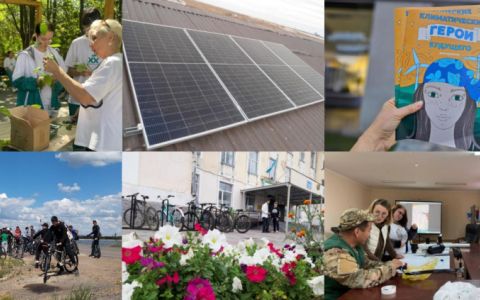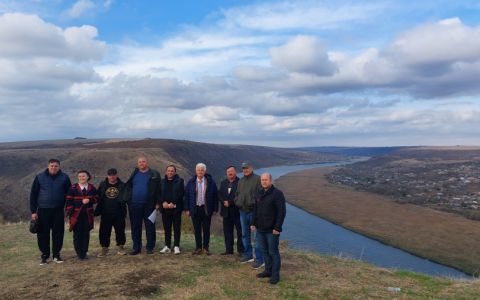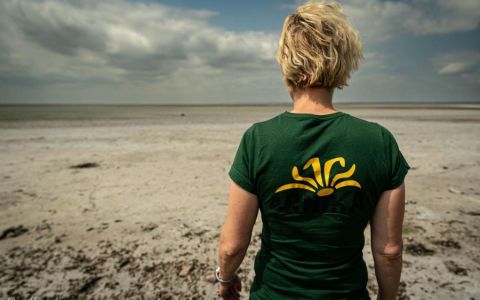Ecological association Arnika announced today the establishment of Coalition for PVC Substitution, which is going to associate companies, civic associations, municipalities and authorities, which reduce usage of polyvinylchloride (PVC) in all kinds of their activities. „The mission of the coalition is to reduce use of one of the most hazardous plastic materials represented by PVC in all areas of work and to see if there are more environmentally friendly and more acceptable alternatives. When founding the coalition, we had been inspired by examples of PVC reduction by many companies and cities or towns abroad (1)“, said leader of the campaign, Ing. Miroslava Jopková. IKEA became one of its first members.
Members of the coalition are obliged, beside not using products made of PVC, to substituting of this materials in their products and services within 3 years after they´ve joined it. Other essential condition of their membership is using more ecologically friendly materials while establishing and equipping or reconstructing and renewal of their facilities and offices. Fulfillment of coalition´s targets will be supervised by five-member supervisory board (2) in following constitution: physician Doc. MUDr. Kamil Ševela CSc, university professor Doc. Ing. Alžbeta Jarošová, Ph.D., president of the Network of Mothers Centers Rut Kolínská and others.
Company IKEA was the first one that joined the coalition. „Our company has tried to avoid use of PVC for about ten years. You won´t find it in our products, and we use more environmentally friendly materials also when we equip our premises and shops. Entering the Coalition for PVC Substitution was a natural matter for us,“ said Marcela Pokorná who is responsible for IKEA´s environmental and social issues. Other members are ARNIKA, Mothers Center Medvidek from town Ústí nad Orlicí, kindergarten in Nerudova street in České Budějovice, academic architect Oldřich Hozman and municipality Nadějkov (south of the Czech Republic).
„Production, usage and liquidation of PVC is accompanied with emissions of toxic chemicals with negative impact on health and environment,“ Jopková explains reasons for establishment of the coalition. „There are more ecological and healthier alternatives of PVC in case of prevailing majority of products made of PVC. The coalition´s task is to point out the existing alternatives and make steps towards general reduction of PVC utilization. It is also planning to make the public more aware of the existence of safer alternatives for the total elimination of PVC use.“
Establishment of the coalition is just a logical development of the campaign „Don´t Play with PVC“ within which Arnika e.g. started up informative poster campaign in towns Děčín and České Budějovice at the beginning of April. Arnika also publishes continually updated lists of consumables packed in PVC and examples of alternatives to PVC products. It also cooperates with hospitals (3) and mothers centers concerning the PVC substitution.
Arnika´s activities in this project were supported by grant provided by Iceland, Lichtenstein, Norway and by the EEC Financial Mechanism and Norwegian Financial Mechanism by NROS (Foundation for Development of Civil Society) and by grant of the Prague City Hall.
Notes:
(1) Number of industrial producers and commercial suppliers has abandoned PVC or reduced its usage, for instance these:
AEG, Daimler Benz, Dell, IKEA, Lego, Lenovo, Nike, Sony, Toyota,
There is also a range of municipalities throughout a world that have set up some conditions limiting the use or sale of PVC on their territory, e.g.:
Aachen, Amsterdam, Arhus, Barcelona, Basel, Bergen, Berlin, Berkeley, Bilbao, Bonn, Carlisle (The U.K.), Cleveland (The U.K.), Den Haag, Hesse, Leicester, Linz, Lloret de Mar (Spain), Luxemburg, Newhaven, Oakland, Rotterdam, Saga (Japan), San Francisco, Sapporo, Santa Fe (Argentina), Seattle, Singapur, Šiga (Japan), Utrecht, Vienna,
Denmark introduced a surcharge for PVC use which is supposed to discourage users from its purchase and use. The Greek part of Cyprus has banned production of toys with content of PVC.
Resource: PVC-Free Future: A Review of Restrictions and PVC free Policies Worldwide. A list compiled by Greenpeace International. 9th edition, June 2003.
(2) The coalition´s supervisory board is composed of five independent personalities. Members of the board continually supervise observing the defined conditions by each member of the coalition. The board meets annually at the minimum to assess fulfillment of targets, decide on approval of new or exclusion of older members.
Members of the supervisory board:
Doc. Ing. Alžbeta Jarošová, Ph.D.
Lenka Hotzká
Rut Kolínská
Lenka Petrlíková Mašková
Doc. MUDr. Kamil Ševela CSc.
(3) Hospitals that minimized usage of risky PVC devices with the content of phthalates, are for instance:
Perineonatologic Department of the University Hospital in Olomouc
Dialysis Dept.- Hospital Na Homolce in Prague
University Hospital Motol in Prague
Neonatologic Dept. – hospital in České Budějovice
Gradual substitution of hazardous medical devices takes place in following facilities:
Hospital „Nemocnice sv. Alžběty“ in Louny
Children Dept. In Hospital Havlíčkův Brod






